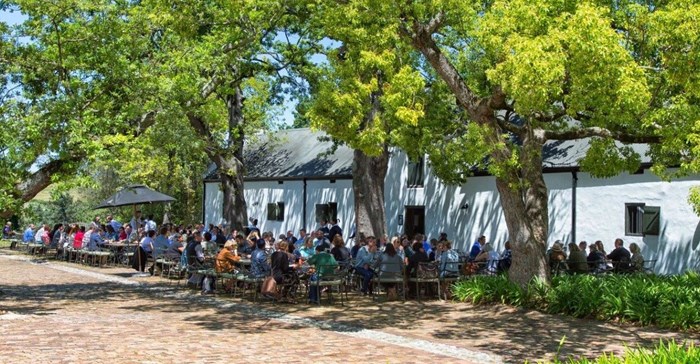Big data is a powerful and innovative tool that wine, food and hospitality establishments can use to get closer to consumers.
“Consumers tell us every moment of every day what they think and experience. We need to meet consumers where they are – literally, and with our words. It’s all about knowing our consumers: who they are, where they are; what, when and how they purchase; what else they buy; and so forth" Cathy Huyghe of Enolytics LLC told The Business of Wine & Food Tourism Conference, held at Spier near Stellenbosch.
“Quantitative data tells us the ‘what’, while qualitative data answers the ‘why’. With the huge amount of data that can tell us exactly what our consumers think, feel and want, there’s no longer any reason for businesses to be out of touch or in the dark. The data is out there, and so are sophisticated algorithms used to analyse data – it just needs to be utilised.”
She also said that big data is especially effective when aggregated or pulled from multiple sources and streams of information, to make up a fuller and clearer picture of the consumer landscape, segments thereof, or even individual consumers.
“What big data does is make us move from the gut to the head, through the heart. It gives us a treasure chest of information required to better understand our consumers, enabling us to come up with more suitable strategies, tactics and approaches to better serve them, ultimately leading to improved consumer experiences that supports tourism growth.”
Huyghe cited various examples and in particular mentioned the Sonoma (Northern California) wildfires last year. She outlined the learnings that could be taken from how many businesses in the region successfully navigated crisis communications by using big data to collaborate and inform effective messaging strategies. “By analysing data, they came to understand that their consumers are more interested in the emotional than the functional. They found an appropriate way to authentically connect with their consumers.”
Capturing the black middle class
Advertising strategist for Joe Public, one of South Africa’s leading advertising agencies, Katlego Ditlhokwe turned up the heat with his talk about the breaking of category norms to create and capitalise on marketing opportunity, specifically zoning in on the South African black middle class. He used the popular marketing model that outlines the consumer trajectory from early adopters, to early majority to the tipping point; to provide wider context.
“The question is how to reach the tipping point - turning occasional into regular users - in terms of the South African wine industry and the growing black middle class in the country. Remember, they were never very exposed to wine. We need to get these consumers, who currently have a distant relationship with wine estates and even the Western Cape, to the tipping point by defining category code and finding ways to break it in order to differentiate, adapt and appeal to focus markets with targeted approaches. Who says wine has to be complicated, expensive, serious and all about snobbery and unattainable sophistication?
“We have to challenge the intimidation of wine, and capture hearts, rather than minds. People genuinely relate to stories better than traditional messages, so it’s imperative to prioritise emotional over functional benefits when communicating about a product or service," he said.
His insights were echoed by Joe Public managing director, Khuthala Gala-Holten. In her talk she explored the reluctance of particularly the black middle class to visit the Cape Winelands and showed why she thinks that is.
“In South Africa right now, winning brands are built on the country’s liveliness, the aspirations of its people and their spirit – tapping into the Zeitgeist. We should be building brands that promote and enable the ‘impossible made possible’, to recognise that black excellence is a story of progression.
“What we have to do is make shifts in the communications landscape without necessarily changing what we’re selling. It really is a growth opportunity. The key is to understand their world, their experiences and affiliations and how they want to experience products.”
Gala-Holten also acknowledged online relevance, PR innovations with authentic influencers, curated and relevant experiences, and collaborations, as key drivers for marketing success within this segment.











































